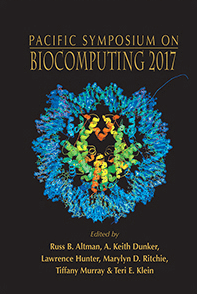
Padideh Danaee1, Reza Ghaeini1, David Hendrix1,2
1School of Electrical Engineering and Computer Science, Oregon State University
2Department of Biochemistry and Biophysics, Oregon State University
Email: danaeep@oregonstate.edu, ghaeinim@oregonstate.edu, david.hendrix@oregonstate.edu
Pacific Symposium on Biocomputing 22:219-229(2017)
© 2017 World Scientific
Open Access chapter published by World Scientific Publishing Company and distributed under the terms of the Creative Commons Attribution (CC BY) 4.0 License.
Cancer detection from gene expression data continues to pose a challenge due to the high dimensionality and complexity of these data. After decades of research there is still uncertainty in the clinical diagnosis of cancer and the identification of tumor-specific markers. Here we present a deep learning approach to cancer detection, and to the identification of genes critical for the diagnosis of breast cancer. First, we used Stacked Denoising Autoencoder (SDAE) to deeply extract functional features from high dimensional gene expression profiles. Next, we evaluated the performance of the extracted representation through supervised classification models to verify the usefulness of the new features in cancer detection. Lastly, we identified a set of highly interactive genes by analyzing the SDAE connectivity matrices. Our results and analysis illustrate that these highly interactive genes could be useful cancer biomarkers for the detection of breast cancer that deserve further studies.